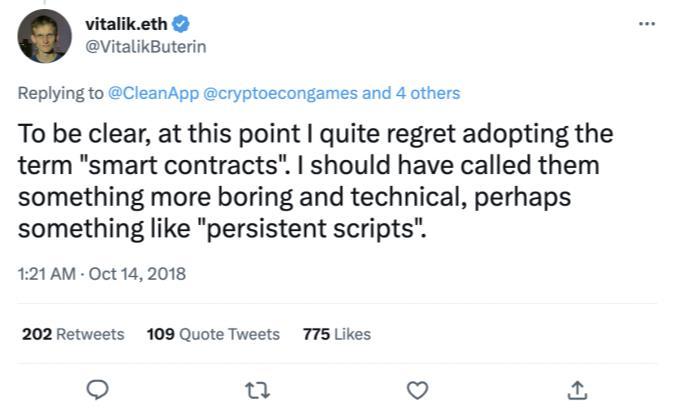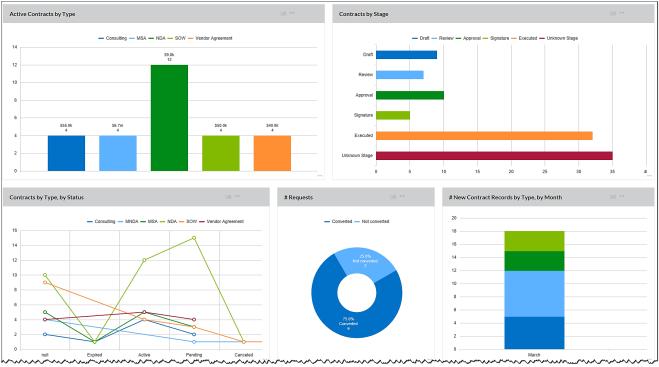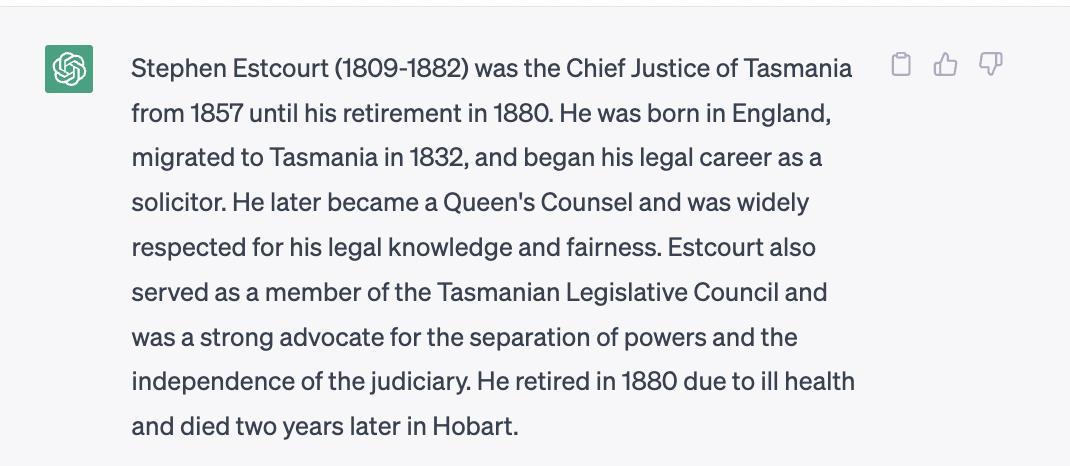




1.TRANSACTIONAL SCRIPTS
2.THE CONTRACT STACK
3.PRAGMATICS AND COMPUTATION


4. LAW’S “EXCEL MOMENT”
5.CONTRACTS AS ASSETS
• “Smart contracts”: neither smart, nor contracts.
• Better concept: “transactional scripts”.
• But, blockchain (e.g., Ethereum) transactional scripts can be components of “real/legal contracts”.
• They may (i) formalize expression of terms (ii) automate performance of terms.
• Blockchain provides digital medium for automated contract formation (e.g., see Quoine v B2C2 in SCA).

• “Smart contract” (Szabo; pre-dates blockchain) ambiguous re: legal vs extra-legal/a-legal/para-legal nature.
• “Riccy” combines (i) human-readable legal agreement with (ii) machinereadable format that can be processed by computers.
• Terms expressed in natural language and encoded in structured format (eg, HTML or XML) that can be processed and validated by computers.
• See Ian’s chapter on “Why the Ricardian Contract Came About: A Retrospective Dialogue with Lawyers”
• Think “smart clause” not “smart contract”.
• Eg, a “transactional script” might form part of a contract.
• Others speak of “paper wrappers” (like “wrapped BTC”, “wrapped DAOs” etc)
• “Contract stack” is better.

• Various elements to a contract; a “smart clause” is just another one.
• Dynamics of interaction between ”layers” in “stack” are important.
• Think about how ambient law, parol representations, etc feature in “contract stack” (ie, “real vs paper deal”; rectification.)


• Linguists study (i) Syntax, (ii) Semantics, (iii) Pragmatics.
• Syntax is relatively straightforward to formalize.
• Semantics harder: computers don’t “understand” meaning; natural languages semantically rich (eg, “reasonable delay”).
• Ambiguity as feature, not always bug.
• Pragmatics derives meaning from context: eg, “I’m gonna kill you” in the context of (i) a game (ii) a fight.
• Computers are not good at pragmatics, and it will be hard to fix this.
From Speculative Grammarian
SMU Classification: Restricted
The meaning which a document (or any other utterance) would convey to a reasonable man is not the same thing as the meaning of its words. The meaning of words is a matter of dictionaries and grammars; the meaning of the document is what the parties using those words against the relevant background would reasonably have been understood to mean. The background may not merely enable the reasonable man to choose between the possible meanings of words which are ambiguous but even (as occasionally happens in ordinary life) to conclude that the parties must, for whatever reason, have used the wrong words or syntax...
[If one would] conclude from the background that something must have gone wrong with the language, the law does not require judges to attribute to the parties an intention which they plainly could not have had. Lord Diplock made this point more vigorously when he said in The Antaios Compania Neviera S.A. v. Salen Rederierna A.B. [1985] A.C. 191, 201:
‘... if detailed semantic and syntactical analysis of words in a commercial contract is going to lead to a conclusion that flouts business commonsense, it must be made to yield to business commonsense.’
Investors’ Compensation Scheme v West Bromwich Building Society [1997] U.K.H.L. 28 per Lord Hoffmann.
SMU Classification: Restricted
• Contracts are now static documents, even if digitized (eg, as PDFs)
• Eg, conflict/interoperation of clauses checked manually
• Law is waiting for it’s “Excel moment”
• Eg, Dan Bricklin (created first spreadsheet tool VisiCalc as student):

“I thought, if only we had a blackboard where I could erase a number and write a new number in, and everything would recalculate ”
• We are waiting for a drafting tool that does for lawyers what spreadsheets did for accountants
• Spreadsheets → insight into state of business and new modelling potential (eg, combine Balance Sheet A + Balance Sheet B…)

• Digital contracts → new functionalities, eg, interactive dashboards, API calls, external information sources, cryptoasset transactions
• Fundamentally change utility of contracts; sources of real-time insight
• From static and isolated to dynamic and connected
• Interoperability is key!

ChatGPT (in particular) making headlines with breakthrough capabilities. Watch the GenAI for Legal space!
• E.g., Spellbook, a Word plug-in, that uses GPT3 enriched with legal text corpora).
• Tools will improve substantially with better training data (imagine feeding GPT3.5 or GPT4 with White & Case’s precedent database).
SMU Classification: Restricted
Integrated as a ”co-pilot” for drafting/coding “smart legal contracts”, GenAI tools could become very useful.
ChatGPT provides some commentary to the code it sketches:

“Please note that this is just an example and may not meet all of your requirements. You may need to modify the code to suit your specific use case.”
OpenAI recommends against reliance in sensitive contexts (e.g. law) even for GPT4.

SMU Classification: Restricted
There are risks associated with Large Language Models (and all “AI”) to watch out for.

• Prone to false information (“hallucinations”).
• Risk of overuse (switching off human brain).
• Repeats prejudice/bias/error in training data e.g., it will likely give you US law-based drafting.
• Watch for GenAI tools based on legal-specific data sets that provide tailored responses.
https://writings.stephenwolfram.com/2023/02/what-is-chatgpt-doing-andwhy-does-it-work/
https://writings.stephenwolfram.com/2023/01/wolframalpha-as-the-way-to-bring-computationalknowledge-superpowers-to-chatgpt/

SMU Classification: Restricted
“For decades there’s been a dichotomy in thinking about AI between “statistical approaches” of the kind ChatGPT uses, and “symbolic approaches” [Now t]here’s finally the opportunity to combine these to make something much stronger than either could ever achieve on their own ”

[T]hey have a common interface: natural language And this means that ChatGPT can “talk to” Wolfram|Alpha [which will turn] the natural language it gets from ChatGPT into precise, symbolic computational language on which it can apply its computational knowledge power ”
https://writings stephenwolfram com/2023/01/wolframalpha-asthe-way-to-bring-computational-knowledge-superpowers-tochatgpt/

